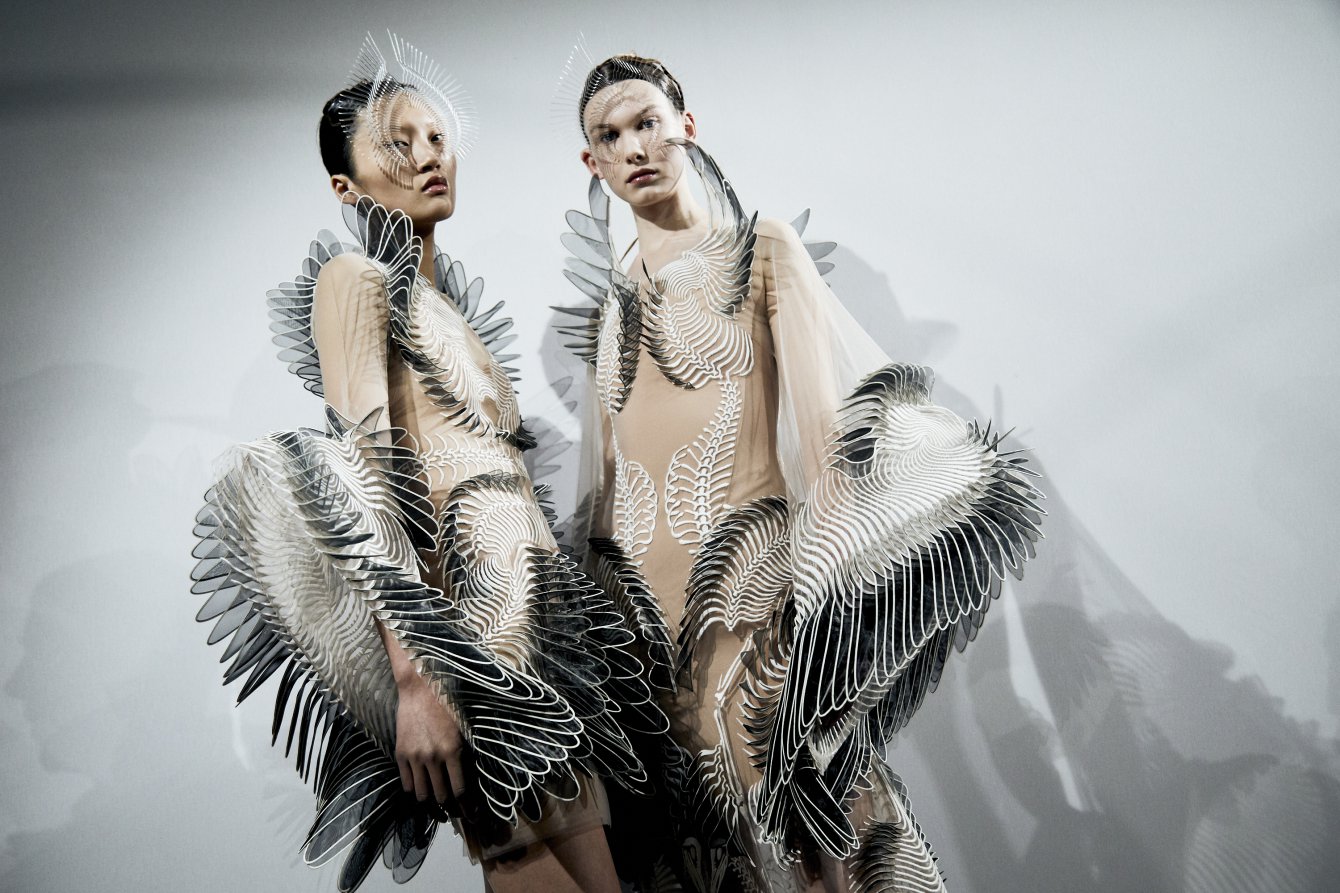Make a Bold Statement With Sedgars Designer Fashion This Autumn
Make a Bold Statement With Sedgars Designer Fashion This Autumn
Blog Article
The Impact of Lasting Practices on Modern Style Styles
Lasting techniques have actually reshaped modern-day style, driving a shift in the direction of eco-friendly materials and ethical manufacturing. Designers currently favor organic cotton, recycled fabrics, and ingenious textiles. Upcycling has actually transformed waste right into one-of-a-kind garments, while openness in sourcing has actually become important. This advancement mirrors an expanding awareness amongst consumers about their investing in options. As the sector adapts, brand-new patterns arise that challenge typical visual appeals. What might the future hold for style in this framework?
The Surge of Eco-Friendly Materials
Just how have green products changed the apparel industry? The development of eco-friendly materials has actually significantly reshaped fashion, driving brand names to reconsider their sourcing and production procedures. These lasting choices, including natural cotton, hemp, and recycled polyester, offer a minimized environmental footprint contrasted to typical fabrics. Designers are now focusing on these materials, identifying that customers increasingly favor brand names committed to sustainability.This change has led to cutting-edge approaches, where fashion houses trying out natural dyes and naturally degradable textiles, boosting both visual allure and eco-friendly responsibility. In enhancement, cooperations in between developers and sustainability-focused firms have actually accelerated the integration of environment-friendly products into mainstream collections.As an outcome, the garment industry is experiencing a steady yet extensive change, moving towards a more sustainable future. This dedication not only mirrors progressing consumer values however also demonstrates the possibility for style to lead in environmental stewardship.
Upcycling: Changing Waste Into Style
Upcycling has become a transformative pressure in the fashion business, transforming discarded materials into preferable garments and devices. This innovative approach not only reduces waste however also motivates creativity and originality amongst developers. By repurposing items such as old clothing, textile scraps, and even non-textile materials, upcycling creates one-of-a-kind pieces that narrate, showing private style and ecological consciousness.Many modern brands and independent developers have actually embraced upcycling as a core technique, interesting customers who value sustainability and individuality. The process usually includes strategies like decoration, reconfiguration, or patchwork, allowing for endless possibilities in design. Consequently, upcycled fashion reverberates with those seeking to make environmentally accountable selections while still sharing personal aesthetics.In significance, upcycling not only reduces the ecological effect of fashion waste however also cultivates a brand-new society of technology and recognition for craftsmanship within the sector.
Honest Production: Fair Labor and Openness
Honest production in fashion emphasizes the significance of reasonable incomes for employees, guaranteeing that laborers receive just compensation for their initiatives. Transparency in supply chains is important, permitting consumers to comprehend the beginnings of their garments and the problems under which they are made. In addition, honest sourcing techniques promote responsibility in picking products, reinforcing the commitment to sustainability and social justice.
Fair Earnings for Employees
While the apparel industry progressively welcomes lasting practices, making certain fair salaries for employees stays an important element of ethical manufacturing. Fair incomes not only equip employees but additionally enhance the general lifestyle for people in the supply chain. Several brand names are currently adopting policies that prioritize equitable settlement, recognizing that a lasting future can not be built on exploitation. By committing to reasonable pay, firms cultivate loyalty and boost productivity amongst their employees (Sedgars Designer Fashion). In addition, consumers are coming to be much more familiar with labor issues and are progressively requiring transparency regarding workers' legal rights. Because of this, brands that focus on fair salaries are not only straightening with moral requirements however are additionally placing themselves competitively in a market that worths social obligation
Transparency in Supply Chains
The dedication to reasonable earnings is inherently linked to the broader issue of openness in supply chains within the style market. Transparency warranties that customers are educated regarding the origins of their clothing and the conditions under which they are generated. Brands that prioritize openness usually release comprehensive records outlining their supply chain processes, labor methods, and sourcing of materials. This visibility promotes count on and commitment among customers who progressively require honest techniques. Openness helps to hold firms responsible for their labor techniques, enabling analysis and encouraging enhancements. By revealing the intricacies of their supply chains, brands can add to an extra equitable style environment, ultimately promoting not just ethical manufacturing but likewise lasting intake among their customers.

Ethical Sourcing Practices
As consumers come to be more aware of the impact of their buying decisions, brands are increasingly taking on moral sourcing techniques that prioritize fair labor and ecological sustainability. These methods involve ensuring that employees obtain reasonable wages, safe working conditions, and are treated with dignity. Numerous style business are moving away from unscrupulous labor methods and are rather working together with suppliers who stick to moral criteria. Openness in sourcing more enhances customer trust, as brand names divulge their supply chain techniques, permitting customers to make enlightened options. This change in the direction of ethical sourcing not just contributes to social responsibility but additionally resonates with an expanding demographic that worths sustainability in style. As a result, ethical sourcing is ending up being a specifying attribute of modern-day style brands.
The Function of Innovation in Lasting Fashion
Although the fashion business has long been related to waste and pollution, modern technology is increasingly changing it right into an extra sustainable sector. Advancements such as 3D printing enable designers to produce garments with less product waste, while digital textile printing permits on-demand production, reducing excess supply. In addition, innovations in recycling innovations are promoting the repurposing of fabrics, reducing landfill contributions.In addition, information analytics and expert system aid brands forecast trends more accurately, ensuring they produce just what is required. Blockchain innovation improves openness in supply chains, permitting customers to map the origins of their apparel and confirm sustainable techniques. Wearable innovation is advancing, promoting durability my company and capability in fashion items. Via these technological advancements, the fashion market is slowly adopting a much more circular economic situation model, cultivating lasting methods that could redefine its ecological impact.

Mindful Consumerism: Shifting Purchaser Mindsets
Conscious consumerism is reshaping the fashion market as customers go to website significantly focus on honest fashion selections. This change is driven by a need for transparency, compelling brands to disclose their practices and supply chains. Therefore, brand commitment is advancing, with customers more probable to support those that straighten with their values.
Ethical Style Choices
Changing purchaser way of thinkings in the direction of honest style options mirrors an expanding awareness of the effect of consumer behavior on the setting and society. Customers are progressively focusing on brand names that highlight honest manufacturing techniques, lasting products, and reasonable labor conditions. This change is fueled by a wish to support companies that align with individual worths, advertising a much more responsible garment industry. Because of this, brand names are adapting their techniques, incorporating transparency and sustainability right into their core objectives. Ethical fashion choices not just test conventional retail practices however likewise motivate customers to show on the lifecycle of their garments. This shift represents a collective step in the direction of a more conscious approach to style, where the ramifications of purchases extend beyond mere looks to include wider ecological and social considerations.
Influence of Openness

Brand Loyalty Change
What drives consumers to continue to be devoted to brands in today's fashion landscape? Increasingly, sustainability plays a pivotal duty. As understanding of environmental problems expands, consumers are moving towards brand names that demonstrate moral techniques and transparency. This change in the direction of conscious consumerism has caused a reevaluation of typical brand loyalty, where worths line up much more carefully with individual ethics. Brands that focus on sustainable products, fair labor practices, and green production techniques are commonly rewarded with customer commitment. This development is mirrored in purchasing decisions, as customers are more ready to sustain brand names that contribute positively to culture. Sustainability has actually ended up being not just an advertising and marketing device, yet a specifying aspect in developing long-term brand name connections with a much more socially aware and critical consumer base. Conscious The Impact of Lasting Style on Patterns
As customers significantly prioritize sustainability, the style sector is experiencing a considerable improvement in fads. This change has actually caused the rise of environment-friendly materials, such as organic cotton, recycled polyester, and ingenious fabrics originated from wikipedia reference sustainable sources. Developers are progressively concentrated on creating versatile, long-lasting garments that urge conscious intake, moving away from rapid style's fleeting styles.Moreover, honest methods are ending up being a trademark of brand identity, with lots of business highlighting their dedication to fair labor and environmental stewardship. The impact of lasting fashion is likewise evident in the appeal of thrift shopping and garments swaps, promoting a round economic climate and reducing waste.Fashion programs and projects currently typically feature lasting collections, stressing the aesthetic appeal of eco-conscious choices. On the whole, the impact of sustainable style on patterns reflects a more comprehensive social shift towards liable consumerism, shaping the future of the sector in extensive means.
Future Developments in Eco-Conscious Layout
The advancement of sustainable fashion fads prepares for future advancements in eco-conscious style. As consumers progressively prioritize ecological responsibility, designers are checking out innovative materials and methods. Eco-friendly textiles, such as mycelium and algae-based textiles, are acquiring grip, promising to decrease waste and dependence on petroleum-based fibers.Moreover, innovations in modern technology are leading the method for cutting-edge manufacturing approaches. 3D printing, for example, permits on-demand manufacturing, lessening excess stock and source consumption. Circular fashion designs are likewise emerging, stressing recycling and upcycling, enabling garments to have extended life cycles.Collaboration between brand names and modern technology business is essential for these advancements. By leveraging information analytics and artificial knowledge, developers can create more sustainable supply chains and decrease their carbon footprints. As eco-conscious practices continue to develop, they essentially transform the fashion landscape, pushing the borders of creative thinking while safeguarding the planet.
Frequently Asked Questions
Just How Can I Identify Sustainable Style Brands When Purchasing?
To determine sustainable style brand names while shopping, one need to seek accreditations, inspect materials, assess manufacturing openness, and research study brand values. Designer Store Sedgars. Involving with consumer reviews and sustainability reports can better assist informed purchasing choices
Are Second-Hand Garments Thought About Sustainable Style?
Second-hand garments are usually considered sustainable style because of their duty in reducing waste and expanding the lifecycle of garments. By purchasing secondhand items, consumers add to a much more eco-friendly apparel economic climate.
What Is the Ecological Influence of Fast Style?
The environmental effect of rapid fashion is significant, adding to air pollution, extreme waste, and source exhaustion. The sector's rapid manufacturing cycles often focus on profit over environmental sustainability, exacerbating climate adjustment and damaging ecological communities worldwide.
How Do Lasting Practices Affect Style Pricing?
Sustainable techniques typically cause higher production expenses due to ethical sourcing and environment-friendly materials. Sedgars South Africa. Style pricing may enhance, showing the investment in ecological duty and reasonable labor techniques, which can influence customer getting decisions.
Can Sustainable Style Be Trendy and elegant?
The concern of whether sustainable fashion can be fashionable and fashionable often arises. Many developers currently mix eco-friendly products with cutting-edge styles, verifying that sustainability and modern appearances can exist side-by-side, interesting a fashion-conscious target market. Lasting methods have reshaped modern-day style, driving a change in the direction of environmentally friendly materials and moral manufacturing. While the style market increasingly embraces lasting methods, guaranteeing fair wages for employees stays a vital component of ethical manufacturing. Mindful consumerism is reshaping the style industry as buyers significantly prioritize ethical style choices. The influence of lasting style is also noticeable in the popularity of thrift purchasing and clothes swaps, decreasing and advertising a circular economic situation waste.Fashion shows and campaigns currently often include sustainable collections, stressing the aesthetic appeal of eco-conscious choices. To identify sustainable fashion brand names while purchasing, one ought to look for certifications, look at materials, analyze production openness, and research study brand name values.
Report this page